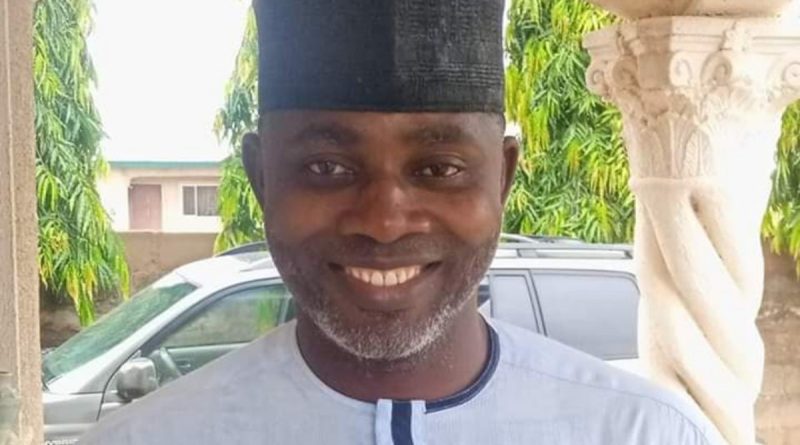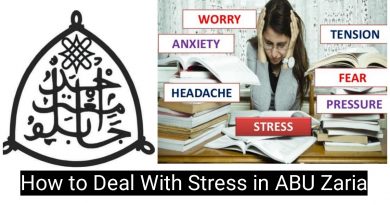A Short Note from Zaria to our “Well-Equipped” Nigerian PhDs in the Diaspora
The objective of the Islamic Development Bank Merit Scholarship Award for High Technology to promising and outstanding scholars and researchers to undertake PhD is to produce technically qualified human resources in the IsDB member countries. The member countries are mostly developing countries.
The recipients for the scholarship award were carefully selected from highly competitive applications. I will be stupid to forget the encouragement of my “ill-equipped” Oga, Professor Hariharan (late) of ABU, towards the submission of the scholarship application. I was lucky to be selected for the award in 2008. The award took me to the University of Leicester, UK, for my PhD.
In a meeting between the Scholars in Universities in Europe and the Bank at Cambridge in 2009, the Bank’s President, Ahmad Mohammed Ali Al-Madan, emphasized the objectives of the Bank in the training program. They want to develop next-generation top scientists and researchers in member countries, which are mostly developing countries.
ALSO READ: Tribute to my Supposed “Ill-Equipped” Lecturers in Nigerian Universities.
He emphasized the need for the scholars to return to our respective home institutions after the PhD to contribute to the national needs of their respective countries in the area of science and technology to improve their socio-economic conditions. I could have chosen to ignore the appeal from the Bank Boss and decide not to return.
I have always wanted to make an impact on the national needs of my country. So, even before the appeal from the Bank’s president, I took the training program as an opportunity to enhance my skills towards making the dream impact in my immediate community first, and the world at large. To me, it was a purposeful scholarship and a purposeful PhD.
When it was obvious to my PhD supervisor that I want to return home after the PhD, he told me during our last meeting in 2012 that he is aware we have constraints in Nigerian universities and promised to be sending me any materials he finds useful. A promised he kept. When he informed me of the postdoc opportunity in Norway, I took it as an opportunity to consolidate on my PhD training at Leicester.
When I returned home after the postdoc fellowship in 2015, my PhD supervisor (a British) didn’t insult us as “ill-equipped” but kept sending me helpful materials (soft and hard). He sometimes sends an email to ask about my challenges. I discussed with him in 2018 that I am struggling without funds to start a research lab in Nigeria and there was this email from him to Steve the next day saying; “Hi Steve, in case you have research equipment to give out, Abdel will need it in Nigeria”.
That email facilitated the sending of the 400 kV HVDC generator from the University of Leicester to Ahmadu Bello University. The facility is installed in my laboratory in ABU Zaria. That is likely the only such HVDC Generator for research in any Nigerian university at the moment. That is a little different.
The UI, ABU Zaria, OAU, UNN, Unilag, BUK, UDUS, Unilag, Federal University Dutse, etc., have PhD scholars trained in the top world ranking universities in the UK, US, Germany, South Africa, Malaysia, China, etc, with world-renowned professors, with similar stories doing their bit in the Nigerian university system.
Some of us returned to the country willingly because we believe we may be able to make a difference through our efforts in guiding students and equipping them with the right skills, mindset, and attitude. Others decided to stay back in the diaspora because they find the already built system more appealing than returning home.
So, I still find the ongoing debate about “ill-equipped” between our academics at home and diaspora rather unfortunate. Most of these scholars abusing their colleagues back in Nigeria were trained by these “ill-equipped” PhDs and Professors.
You can’t keep blaming the Lecturers for the poor undergraduate programs in Nigerian universities when we have poor infrastructural development in the universities and the Lecturers are not given the required training and retraining. Attendance of workshops and conferences is viewed as a privilege except you can fund yourself. I have never been able to get a fund for international conferences since my return to Nigeria.
Our supposed “ill-equipped” Professors should rather be commended that despite the harsh condition of service that some of the diaspora colleagues ran away from, they are still able to produce students that left Nigeria and are now “well-equipped” in universities in Euro-America. There is no way they would have gone abroad without the Bachelor’s degrees from our supposed “ill-equipped” Academics in Nigeria.
I was discussing with a friend and colleague, a postdoc fellow in Norway, recently who insisted that the only way to save the university is to introduce tuition since we can’t make our leaders act responsibly. It is surely difficult to convince someone whose children never attended public universities to fund public education.
But does it mean we can’t make these leaders to be responsible? There was an ASUU strike for 9 months and the Ministers for education are still in office. The frustrated lecturers, the students, and the frustrated parents are all victims of the failure of leadership in Nigeria that led to the underfunding of public education and the prolonged ASUU strike.
All is surely not well with the Nigerian university system, else there won’t be the need for this perennial ASUU strike to FORCE the government to inject funds into the universities.
Nigerians in the diaspora are happy to lobby for a political appointment with the government but not prepared to pick up a faculty position in one of our universities to set an example of the standard they are preaching. Instead of the needless exchange of abusive words, we are supposed to be discussing the way forward to save education from irresponsible leadership.
Indians in the Euro-America, for example, are taking something home. So, what are the efforts of the Nigerian academics in the diaspora to bridge their observed gap at home?
Prof. Pius Adesanmi before his death worked with international stakeholders and local universities in various training programs for early- and mid-career academics and researchers. Prof. Ibrahim Katampe of Central State University in the US held several workshops with researchers in Nigerian universities last year on TETFund NRF grant proposal writing.
Over the weekend, I attended an interesting webinar organized by Ghana Students Association in Malaysia on “Winning public and private research grants”, and Prof Ahmed Osumanu Haruna of UPM, Malaysia was the speaker. While some of us won our first basic research grant before becoming Senior Lecturers, during the question and answer, a colleague from a Nigerian university said he is a Senior Lecturer and has never written a research proposal and requesting for mentorship help.
People are ready to learn. So, instead of throwing insults, if the academics in the diaspora think they have got something to offer, they can collaborate with our universities and the relevant faculties to make contributions. Such interventions from colleagues in the diaspora will be helpful palliatives that should again not be mistaken for the solution. And just the way they criticize the government from the diaspora, they can also help to put pressure on those singularly responsible for the education situation: the country’s leadership.
It is OK that out of frustration by the system or your unwillingness to sacrifice anything for your motherland, you decided to leave for an already developed system and you are now “well-equipped” as a PhD or Professor. But it is not just enough to criticize. Find a way to contribute to the system that has contributed to your making instead of insulting the Academics that sacrificed so much to give you the foundation to become what you are today.
Some people always find it easy to attack Lecturers in Nigerian universities from the point of view of the ASUU strike. Strike action is still among the strongest weapons to drive a point when dealing with a stubborn government. The UK universities were on strike 3 times between 2018 and March 2020. The February-March 2020 lasted for 2 weeks.
Till someone can give us a practicable alternative to dialogue and then strike, strike action is at the moment the only weapon that has made Nigerian public universities have a semblance of what is called a university. As an Academic in the Nigerian university system, I will always participate in ASUU strike to press home only one demand: the children of ordinary Nigerians in Nigerian Universities deserve to be educated in the conditions that our irresponsible leaders send their children to enjoy in the University campuses of Euro-America.
Like Kabiru Danladi Lawanti stated, scholarship is about impact, either in publication, training, or research. Some of the “ill-equipped” Lecturers in Nigerian universities have a higher Google Scholar h-index and i10-index compared with some of these “well-equipped” PhDs and Professors in the diaspora.
Just the way the Diasporas lobby for political appointments, they can also come home for faculty positions to make a change they desire. That will work faster than criticizing from abroad. People made sacrifices to develop that appealing system abroad. Let’s tackle the failed system in Nigeria instead of going too low to throw insults to the Professors that sacrificed so much in training you to become what you are today.
Don’t be an ingrate.
Abdelghaffar Amoka Abdelmalik is from the Department of Physics, Ahmadu Bello University (ABU) Zaria.
For Advert Placement, Sponsorship, support, Article submission, suggestion, etc, Contact us: info@theabusites.com, +2349015751816 (WhatsApp)








